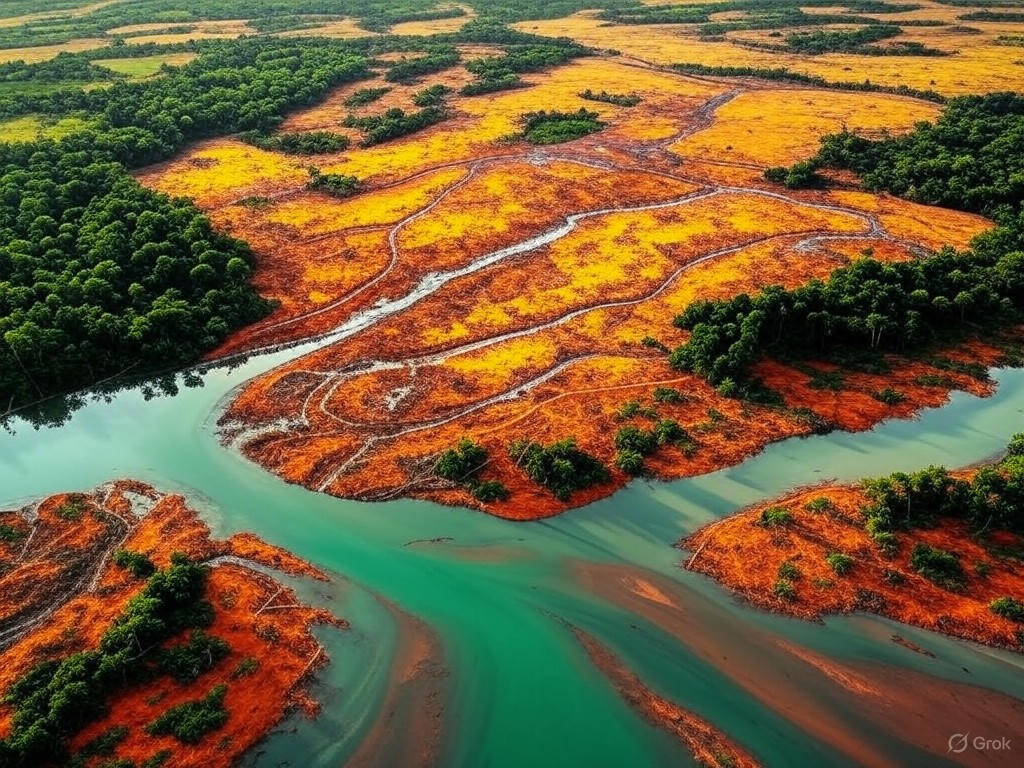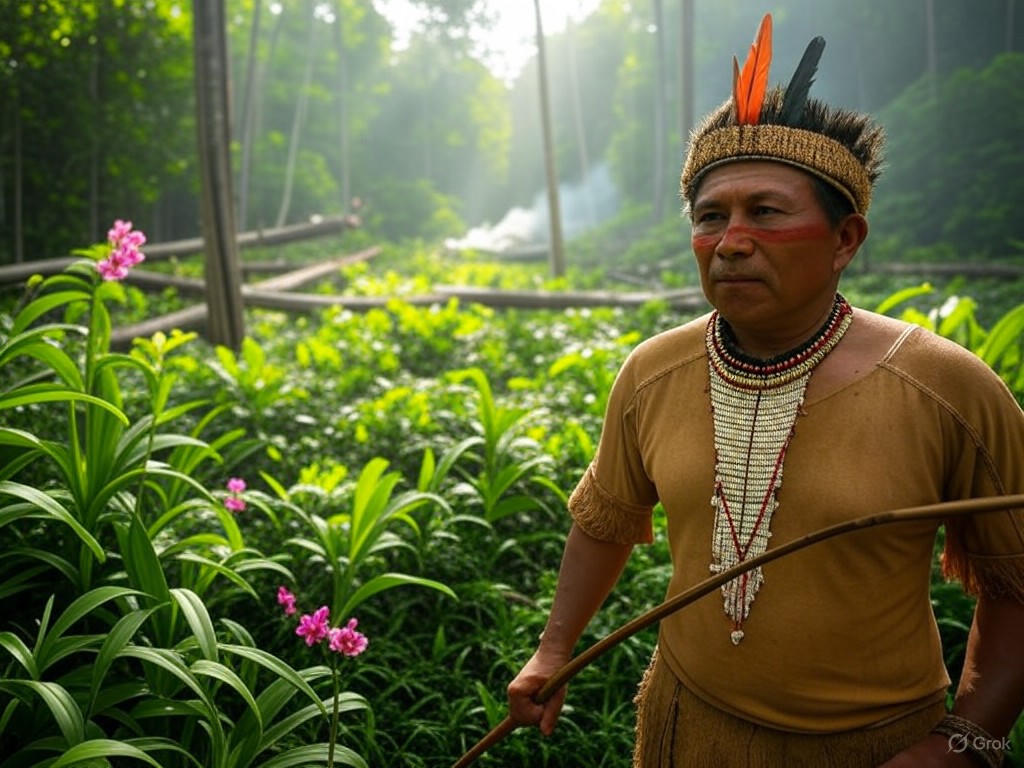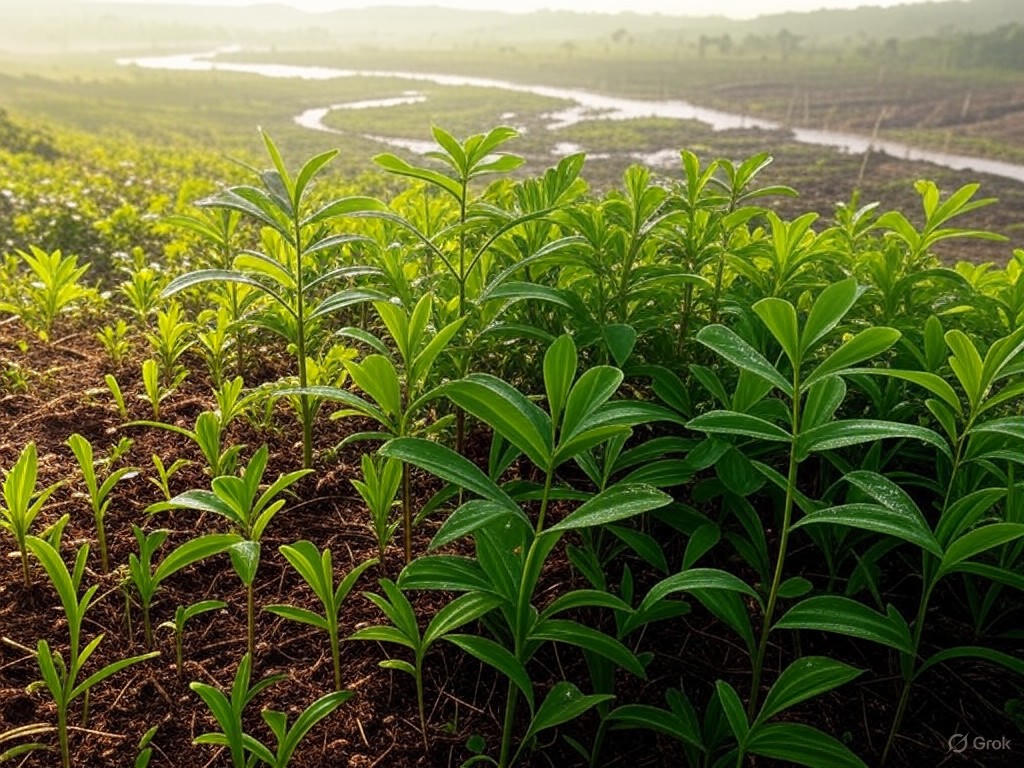Brazil’s Amazon Deforestation: Global Climate Fallout
In the heart of South America, where the Amazon River weaves its ancient threads through a tapestry of emerald leaves, there lies a silent symphony of life—a world where trees whisper secrets to the wind and creatures dance in the shadows of giants. Yet, this verdant expanse, often called the "lungs of the Earth," is fading, leaf by leaf, under the relentless advance of human ambition. As Brazil's Amazon faces unprecedented deforestation, it accelerates the global rhythm of climate change, stirring international debates on environmental stewardship. From a center-right lens, this crisis beckons not for heavy-handed mandates but for innovative, market-driven solutions that honor tradition, empower private enterprise, and safeguard the natural order without overreaching governmental control. This editorial explores how deforestation in the Amazon exacerbates climate change and biodiversity loss, drawing on evidence to advocate for balanced, incentive-based approaches.
The Unfolding Drama: Deforestation in Brazil's Amazon
The Amazon rainforest, a vast wilderness spanning nearly 5.5 million square kilometers, has long stood as a bulwark against the excesses of modernity. In Brazil, which harbors about 60% of this ecosystem, deforestation has surged in recent years, driven by agricultural expansion, logging, and mining. Official data from Brazilian environmental agencies indicate that between 2019 and 2023, the rate of forest loss averaged over 10,000 square kilometers annually—equivalent to the size of a small country vanishing each year Brazil's National Institute for Space Research. This erosion not only scars the landscape but also unleashes a cascade of climatic consequences, as the Amazon's dense canopy acts as a critical carbon sink, absorbing billions of tons of CO2.

This satellite image captures the stark contrast between untouched rainforest and cleared land in Brazil's Pará state, illustrating the rapid pace of habitat loss in 2023.
At its core, deforestation accelerates climate change by releasing stored carbon into the atmosphere. When trees are felled and burned, they release the carbon they have sequestered over centuries, contributing to greenhouse gas emissions. According to a 2022 report, Brazil's deforestation accounted for roughly 5% of global CO2 emissions in the previous decade World Resources Institute. This process disrupts the delicate balance of global weather patterns, intensifying droughts, floods, and storms worldwide. Moreover, the loss of biodiversity—home to an estimated 10% of the world's known species—diminishes the Amazon's role as a genetic reservoir, threatening traditional ways of life for indigenous communities and potentially stifling innovations in medicine and agriculture derived from natural resources.
From a center-right perspective, this crisis underscores the need for policies that leverage free-market principles rather than imposing restrictive regulations. Excessive government intervention risks stifling economic growth in Brazil, a nation where agriculture and resource extraction fuel employment and trade. Instead, incentives for sustainable practices, such as tax credits for eco-friendly farming or carbon offset markets, could encourage private actors to invest in conservation without undermining productivity.
Analyzing the Ripple Effects: Climate Change and Biodiversity Under Threat
Delving deeper, the interplay between Amazon deforestation and climate change forms a vicious cycle that demands thoughtful scrutiny. As forests are cleared, the region's ability to regulate rainfall diminishes, leading to a phenomenon known as "dieback," where the rainforest itself becomes more susceptible to drought and fire. A study published in Nature Climate Change highlights that continued deforestation could push the Amazon toward a tipping point, transforming large swaths into savannah-like ecosystems incapable of supporting current biodiversity Nature Climate Change. This not only amplifies global warming—contributing to rising sea levels and extreme weather—but also erodes the planet's biological diversity, with species like the jaguar and giant otter facing habitat fragmentation.
Biodiversity loss, in turn, carries economic implications that align with traditional values of stewardship and self-reliance. The Amazon's flora and fauna underpin ecosystems that provide essential services, such as water purification and pollination, which support agriculture in Brazil and beyond. Yet, the current trajectory risks long-term instability. For instance, a 2021 analysis by the World Bank estimated that biodiversity decline could cost the global economy trillions in lost ecosystem services by 2030 World Bank. This economic toll is not merely abstract; it affects communities dependent on the land, from Brazilian farmers to international supply chains.

An indigenous leader stands watch over a protected section of the Amazon, symbolizing the intersection of traditional values and modern conservation efforts in 2022.
In analyzing these issues, a balanced view must consider the role of international pressures. Calls for stricter environmental policies, often emanating from global forums like the United Nations, have intensified, with entities such as the European Union advocating for trade restrictions on Brazilian commodities linked to deforestation. While these measures aim to curb environmental harm, they can inadvertently penalize free markets. A Wall Street Journal piece from 2023 noted that such restrictions might exacerbate poverty in rural Brazil, where small-scale producers lack the resources for sustainable alternatives Wall Street Journal. Here, the center-right approach favors voluntary frameworks, such as certification programs for sustainably sourced products, which empower businesses to compete on environmental merits without bureaucratic overreach.
Evidence and Pathways Forward: Toward Market-Based Solutions
Evidence from various sources paints a compelling picture of the stakes involved. Satellite monitoring by organizations like the University of Maryland's Global Land Analysis & Discovery program reveals that deforestation rates spiked by 30% in 2022 alone, correlating with warmer global temperatures and biodiversity declines Global Land Analysis & Discovery. These findings underscore the urgency, yet they also point to opportunities for innovation. For example, private enterprises are pioneering agroforestry techniques—combining tree planting with crop cultivation—that could reduce deforestation while maintaining agricultural output.
To address this, we must advocate for limited government involvement paired with robust market incentives. Tax reforms that reward companies for adopting low-impact logging or reforestation projects could stimulate investment without mandating quotas. International trade agreements might include provisions for carbon credits, allowing Brazil to monetize its conservation efforts and integrate them into the global economy. Such measures respect traditional values by preserving the Amazon as a shared heritage, while fostering self-reliance through entrepreneurial spirit.

This image depicts a regenerating edge of the Amazon forest in Brazil, showcasing early signs of recovery through community-led sustainable practices in 2024.
In conclusion, Brazil's Amazon deforestation stands as a poignant reminder of humanity's fragile dance with nature—a symphony interrupted by the axe and the flame. As it propels climate change and biodiversity loss, international calls for action grow louder, yet we must tread carefully. A center-right vision prioritizes free-market ingenuity over expansive regulation, promoting incentives that align economic progress with environmental stewardship. By empowering private sectors and honoring the timeless wisdom of conservation, we can forge a path that sustains both the planet and prosperity. The Amazon's whispers endure; it is ours to listen and respond with wisdom, not edict.

